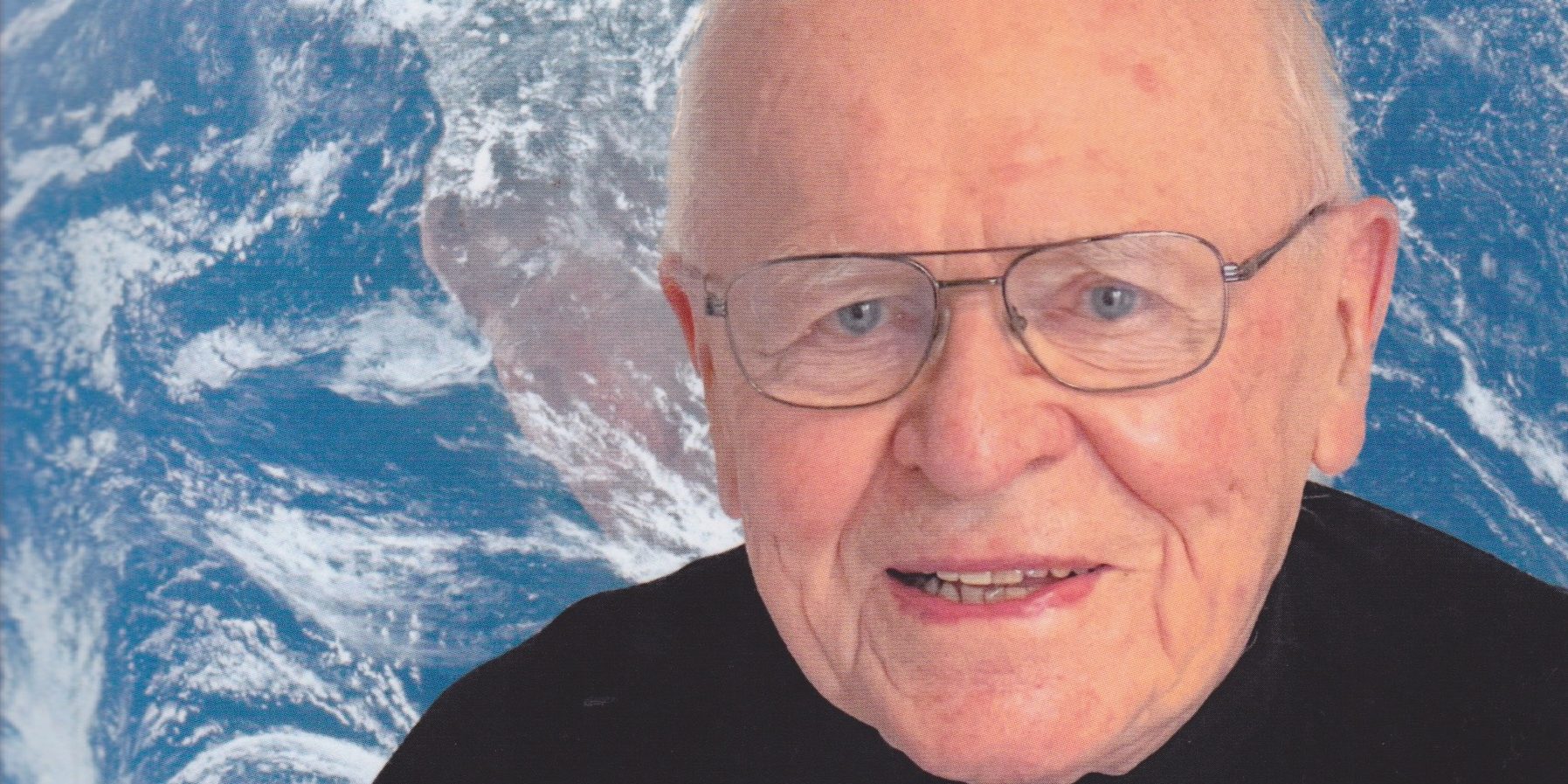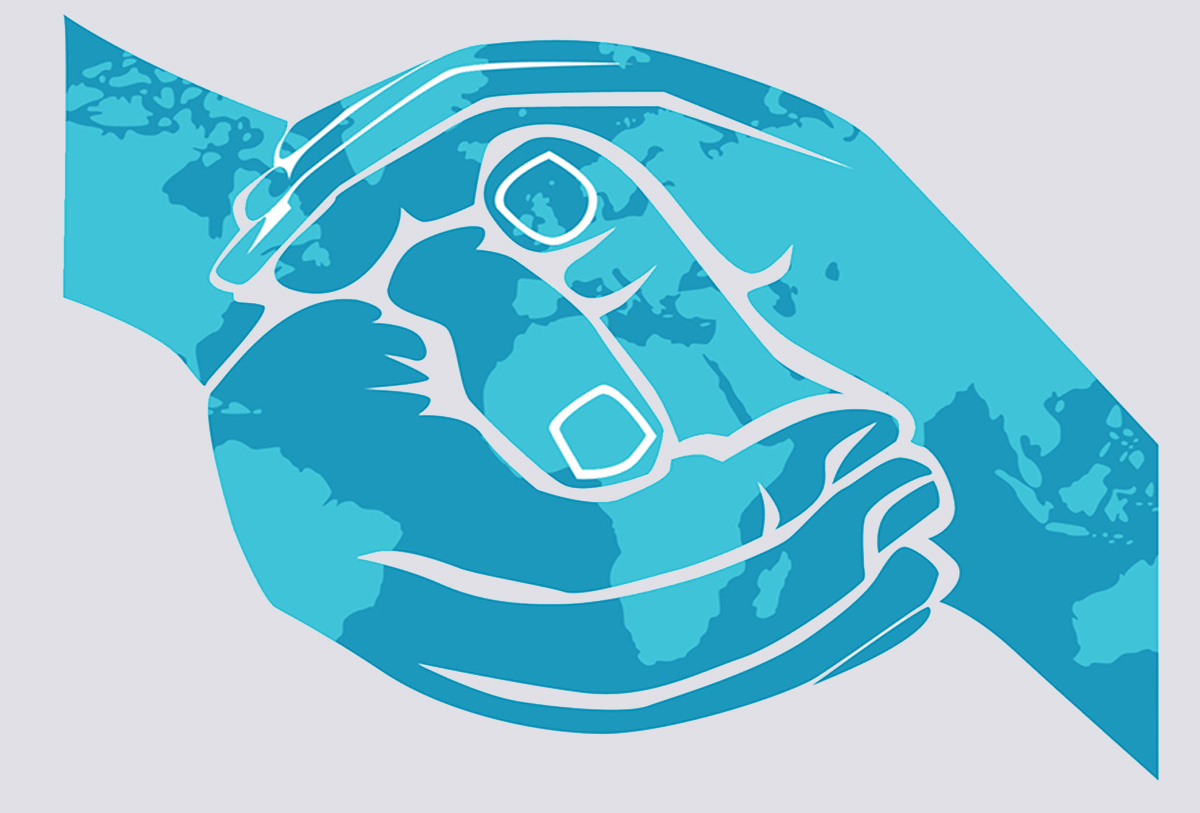Hope is rooted in our spirit. It is not a tangible thing we can put on the table to bargain over. Hope is a vision of the future, former senator Doug Roche writes in his latest book.
The cover of Doug Roche’s new book, Keep Hope Alive: Essays for a War-Free World, shows a photo of the author, a smiling 95-year-old internationally recognized peacemaker, in front of an image of our Earth seen from space. In these dark and cynical times, the title might suggest an unrealistic view of human nature. Where do we find this hope? We are surrounded by unyielding nuclear-weaponized states, galloping climate change catastrophes, and the forced movement of tens of millions of refugees who are fleeing starvation, war, and persecution. And who cannot feel the deep pain of Israel-Palestine, Russia-Ukraine, Yemen, Sudan, and an ever-emerging list of militarized conflicts? With the calm experience of an elder, Roche, who I am proud to say is a friend of mine, recognizes all of these looming perils, but still has the audacity to offer hope—the hope that we can still survive.
Roche pulls no punches over the depth of the world-ending problems, greater than any time in history. “Being of Irish descent, I have a streak of darkness in me,” he writes. “Sometimes I feel that the forces of evil are just too much and that they will triumph over goodness.” These are very dark times. The military-industrial complex that then-United States president Dwight Eisenhower warned us about more than 60 years ago now has a vice grip on what used to be called diplomacy, but is now proactive warfare and national revenge. New weapons are developed, tested, and used. When they become obsolete, they are passed on to allies as “aid” and sold to poorer nations. Further down the chain they are sold to terrorists and criminal gangs. It is a lucrative market for war profiteers of all stripes, from some of the largest international corporations to the back-alley arms dealers.

Because no weapon that was ever produced has sat unused, we would be naïve to think that the world’s thousands of nuclear weapons will not one day destroy much of the earth—unless they are dismantled and prevented from being built anew. So where is the hope? Roche reminds us that “hope is a theological virtue” that has the power to fuel a global conscience. Non-violent leaders like Mahatma Gandhi; Martin Luther King, Jr.; Bishop Desmond Tutu; Cesar Chavez; and Dom Hélder Câmara, drawing on the power of their faith in deep draughts, have achieved great things. But so far, the world’s religions have mostly fallen down on the job, choosing instead to tend only to their own houses.
I think of Roche as a kind of modern-day prophet, but not the kind that we imagine predicts the future. Franciscan Richard Rohr describes prophets as those who do the opposite of predicting the future. “They insist the future is highly contingent on the now,” he says. “That’s not predicting the future as much as it’s naming the now, the way reality works.”
When Roche writes, “I am a realist for peace. That means I think we may be able to save the ecosystem and prevent the destruction of huge areas of the planet from nuclear warfare – or we may not,” he is being prophetic. He shows the way we can go that will undo us. But he also shows us that there is hope in the knowledge and structures for peace that are already in place—if we are willing to adopt them. Unfortunately, it is not the national governments that can be expected to do this without a great deal of pressure from the people. “What will save us—if only it can be harnessed—is the will of the people, writes retired lieutenant-general and former senator Roméo Dallaire in the preface to Keep Hope Alive.
“Senator Roche has provided us, yet again, with an inspirational call to action and a practical handbook for hope.”
I think Dallaire is right to say that it will only be the will of the people, made insistently clear to the nations, that will save this world from an untimely end. I would add that the will of the people will have to be radical, non-violent, and in great and sustained numbers. It must be radical, that is, to get to the root of global survival that nationalism blatantly ignores. It must be non-violent in the ways taught by the great modern prophets like Gandhi and King. It can’t be a flash mob that appears one afternoon and disappears before sunset. It will build on multilateral institutions like the United Nations, and not military pacts like NATO. And like all human endeavours, it will be imperfect but hopefully enough to save the world.
Dallaire is also right to call Keep Hope Alive a handbook. Essay by essay, it is exactly that, lucidly covering topics from artificial intelligence to the Just War Theory. There are chapters in this book to fuel and enlighten a movement. A crisp and highly readable writer, Roche says this is his last book. He has already written 24 others. When he told me this a few months ago, I joked that I would believe it when I saw it. I have never met a writer in his ninth decade so filled with lucidity, wit, and prophetic energy. Do get a copy of Roche’s new, very readable handbook. I hope you can find a way to put it into action.
Former senator Douglas Roche’s new book, Keep Hope Alive: Essays for a War-free World, is available on Amazon, Kobo, and Apple. This story originally appeared at The Hill Times. Jim Creskey is a founding editor and publisher of The Hill Times.
The Global Security Institute is dedicated to strengthening international peace and security based on co-operation, diplomacy, shared interests, the rule of law and universal values. Our efforts are guided by the skills and commitment of our team of former heads of state, distinguished diplomats and politicians, celebrities, religious leaders, Nobel Peace Laureates, disarmament and legal experts, and concerned informed citizens. Our focus is on controlling and eliminating humanity’s greatest threat – nuclear weapons.







